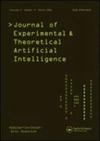基于COVID-19数据的机器学习和深度学习模型的流行病预测
IF 1.7
4区 计算机科学
Q3 COMPUTER SCIENCE, ARTIFICIAL INTELLIGENCE
Journal of Experimental & Theoretical Artificial Intelligence
Pub Date : 2022-04-06
DOI:10.1080/0952813X.2022.2058618
引用次数: 3
摘要
严重急性呼吸综合征-冠状病毒(通常被认为是COVID-19)的灾难性流行给人类社区带来了全球性的脆弱性。世界各国都在通过技术、经济、相关数据、防护装备、生命危险药物和所有其他工具等各个方面作出巨大努力,应对这一致命病毒的爆发。基于人工智能的研究人员将知识、经验和技能应用于国家层面的数据,为调查这种大流行情况创建计算和统计模型。为了为这个全球人类社区做出贡献,本文建议使用机器学习和深度学习模型来了解其日常加速行动,并利用约翰霍普金斯大学仪表板的实时信息预测COVID-19未来在各国的可达性。在这项工作中,提出了一种新的指数平滑长短期记忆网络模型(ESLSTM)学习模型来预测病毒在不久的将来的传播。使用RMSE和r平方值对结果进行评估。本文章由计算机程序翻译,如有差异,请以英文原文为准。
Epidemic Prediction using Machine Learning and Deep Learning Models on COVID-19 Data
ABSTRACT A catastrophic epidemic of Severe Acute Respiratory Syndrome-Coronavirus, commonly recognised as COVID-19, introduced a worldwide vulnerability to human community. All nations around the world are making enormous effort to tackle the outbreak towards this deadly virus through various aspects such as technology, economy, relevant data, protective gear, lives-risk medications and all other instruments. The artificial intelligence-based researchers apply knowledge, experience and skill set on national level data to create computational and statistical models for investigating such a pandemic condition. In order to make a contribution to this worldwide human community, this paper recommends using machine-learning and deep-learning models to understand its daily accelerating actions together with predicting the future reachability of COVID-19 across nations by using the real-time information from the Johns Hopkins dashboard. In this work, a novel Exponential Smoothing Long-Short-Term Memory Networks Model (ESLSTM) learning model is proposed to predict the virus spread in the near future. The results are evaluated using RMSE and R-Squared values.
求助全文
通过发布文献求助,成功后即可免费获取论文全文。
去求助
来源期刊
CiteScore
6.10
自引率
4.50%
发文量
89
审稿时长
>12 weeks
期刊介绍:
Journal of Experimental & Theoretical Artificial Intelligence (JETAI) is a world leading journal dedicated to publishing high quality, rigorously reviewed, original papers in artificial intelligence (AI) research.
The journal features work in all subfields of AI research and accepts both theoretical and applied research. Topics covered include, but are not limited to, the following:
• cognitive science
• games
• learning
• knowledge representation
• memory and neural system modelling
• perception
• problem-solving

 求助内容:
求助内容: 应助结果提醒方式:
应助结果提醒方式:


